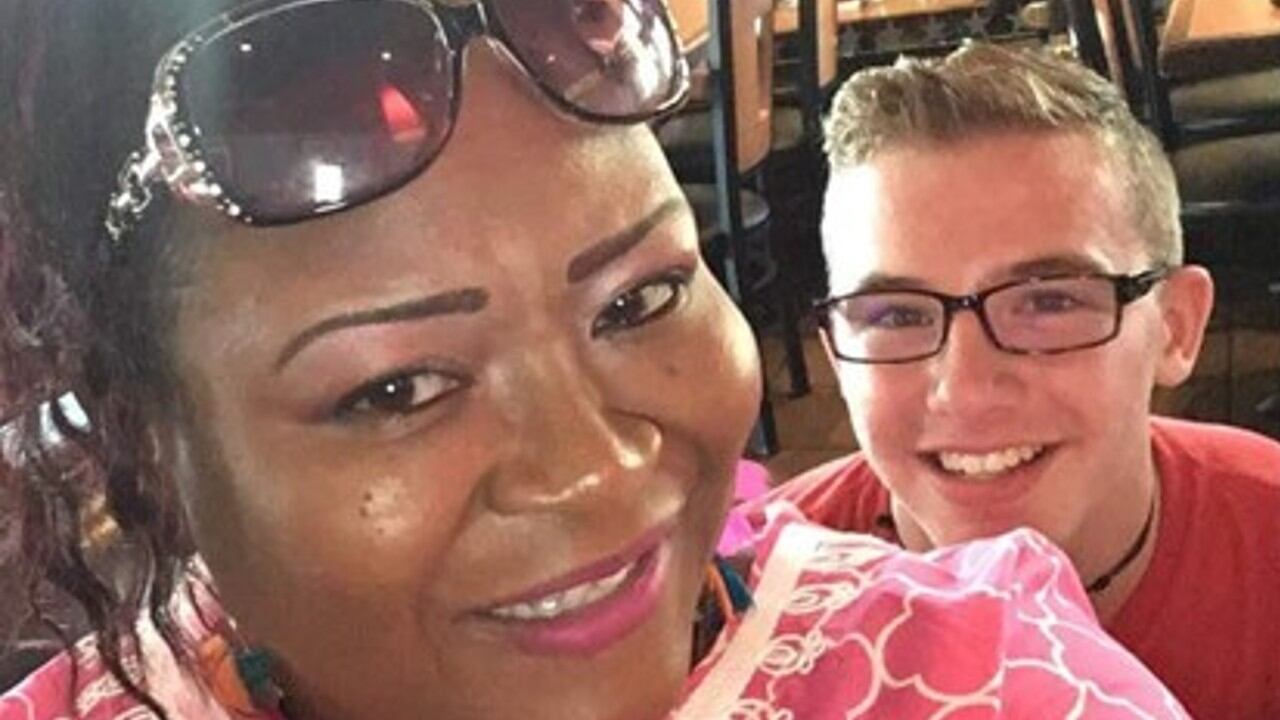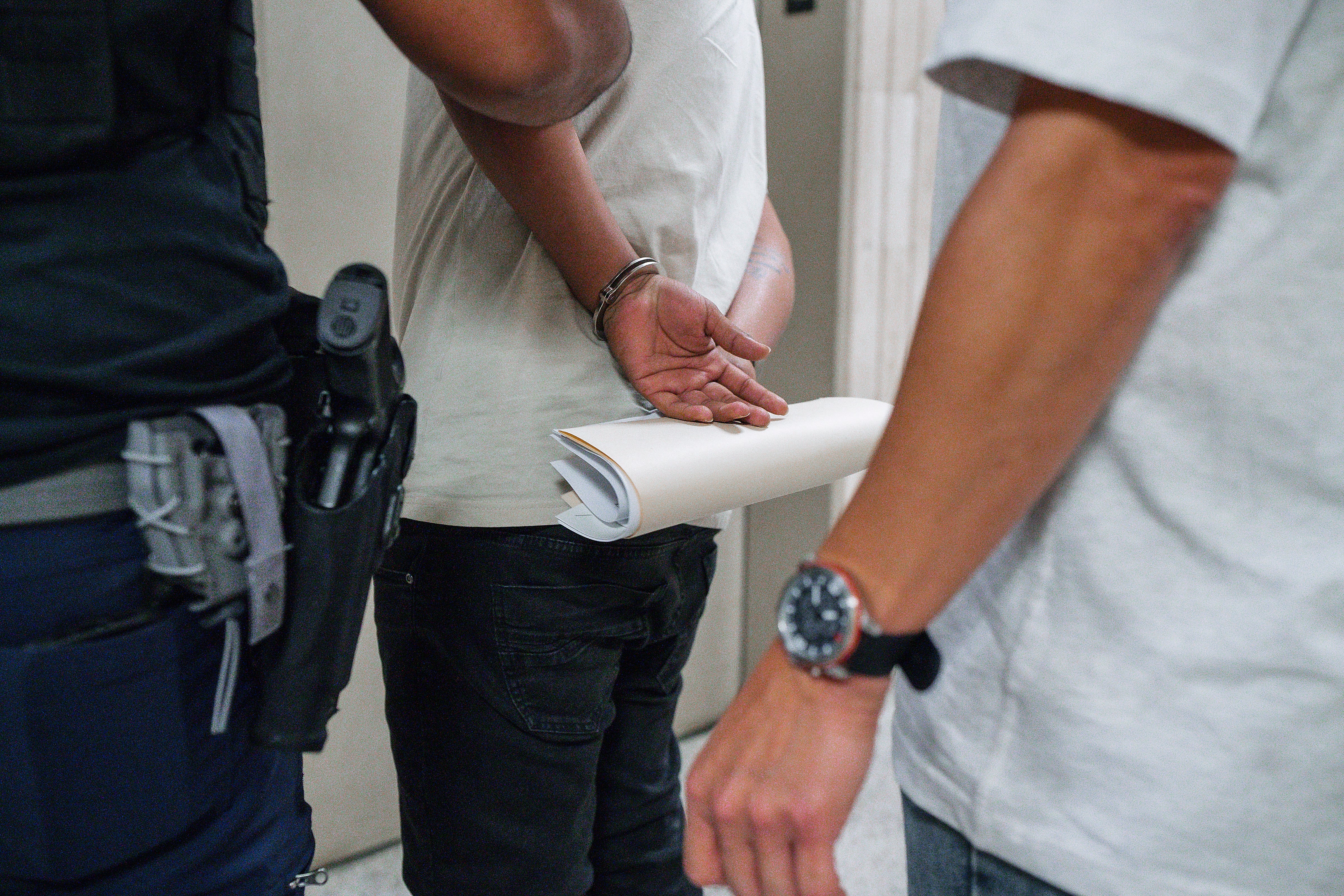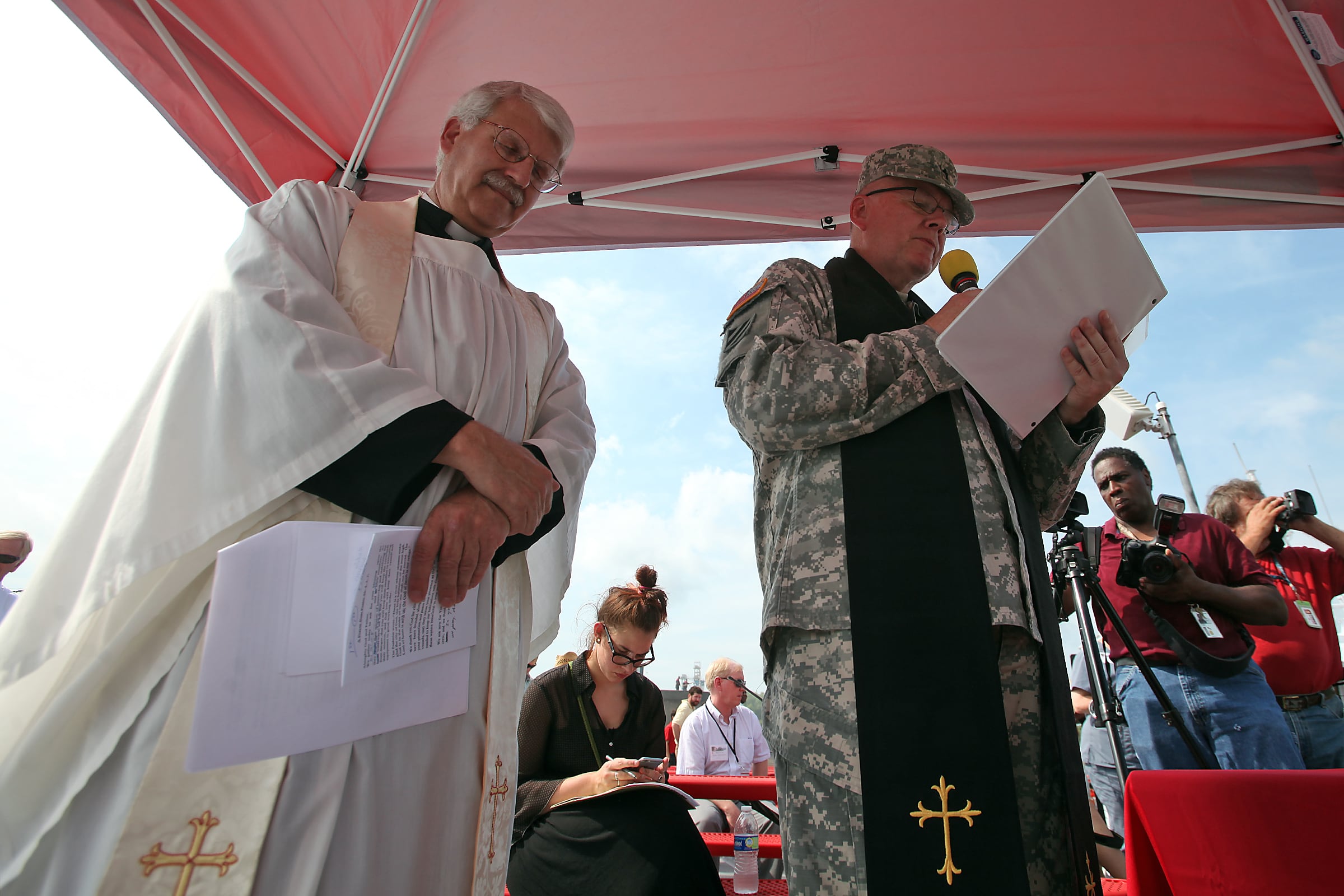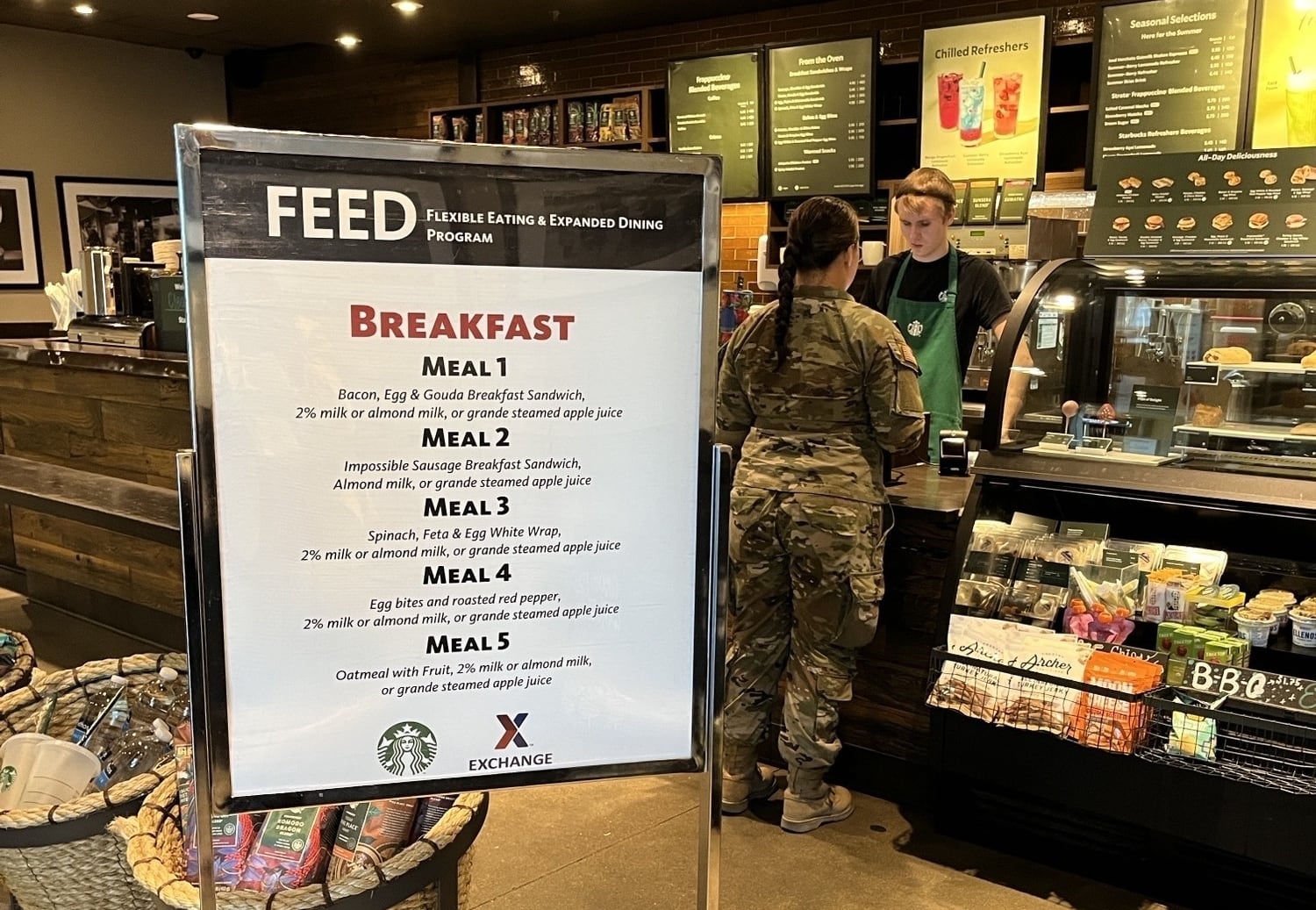The month of October is marked by crisp air, pumpkin patches and costume-clad children. But, October gained new meaning to me six years ago following a youth group trip to Lake Champion, New York. The trip changed my life, all because of a chaperone named Janell West — or Mama Nell, as she is lovingly known. With her jokes, smile, purple and black hair, Mama Nell’s colorful outfits definitely matched her personality.
She had a commanding presence. As soon as she set foot on the bus, everyone knew she was in charge. After laying down the rules for our youth group trip, she told us everybody called her “Mama Nell.” I really got to know Mama Nell when we arrived at Lake Champion. This vibrant and strong woman took me under her wing and broke through the negativity in my mind about family, faith, and other personal struggles. Her positive guidance and conversations with me overpowered those negative thoughts. Something about Mama Nell let me know I could speak to her freely. I only knew Mama Nell for a few days, but when she opened up to me about her struggle with breast cancer, I knew it was an emotional roller coaster.
She got up in front of the entire group of kids and began to tell her story, which let me know she was a safe person to go to about anything in life. Mama Nell is the reason I hold October — Breast Cancer Awareness Month — near and dear to my heart. The U.S. Navy identifies the month of October for breast cancer awareness and provides public information regarding breast cancer. It is important to tell stories like Mama Nell’s in order to bring awareness to this important issue. Like many others, her story is the story of a fighter.
Mama Nell’s battle began in January 2005 when she was performing a self-exam after watching an ad on television advocating for breast cancer awareness.
“I was performing a self-exam and noticed a lump in my right breast,” said Mama Nell. “I immediately knew it was cancer. I went to church that Sunday with my mom, told her, and she began to cry, which stopped the entire service. Then, I got up in front of the church of about 200 people and told them what was happening.”
The church supported Mama Nell and guided her spiritually.
“I couldn’t have made it through some of the very tough times without the support of my family and church,” she said.
After that, Mama Nell scheduled an emergency mammogram with her doctor to diagnose what she felt in her breast. When her doctor told her the results of the mammogram, she was not prepared for how bad it really was.
“I was diagnosed with stage 4 breast cancer, but I had no idea it was that bad,” said Mama Nell.
At 36, she never had a mammogram. At that time, it was only recommended for women over forty.
Stage 4 cancer, in Mama Nell’s case, meant it had spread to her lymph nodes — and it almost spread throughout her body. A series of tests are performed to determine how far the cancerous cells have spread following the discovery of a malignant tumor.
“The process used to find out whether the cancer has spread within the breast or to other parts of the body is called staging,” according to the National Breast Cancer Foundation. “The information gathered from the staging process determines the stage of the disease. It is important to know the stage in order to plan treatment. The results of some of the tests used to diagnose breast cancer are also used to stage the disease.”
With the news and diagnosis, a team of doctors assembled to discuss treatment options and put a care plan in place. Her doctors wanted to perform surgery and remove the tumor but it was in a dangerous place. Once they determined the best course of action, she began her battle. She endured eight months of chemotherapy and six weeks of radiation, both of which were designed to shrink the mass attached to her chest wall. On top of that, doctors removed 21 lymph nodes to prevent the cancer from spreading. Over the course of her treatment, Mama Nell went through the wringer. She was hospitalized too many times to count.
“I was extremely sick, weak and lost half of my body weight because I could not eat with how sick the treatments made me,” said Mama Nell. “It was scary, and it felt like I was a zombie. I thought I was dying because I was. The children from the youth ministry visited me. They brought me cards and balloons. Lots of balloons.”
After diagnosis, doctors will discuss a treatment regimen designed to fight the cancer.
“There are five treatment options, and most treatment plans include a combination of the following: surgery, radiation, hormone therapy, chemotherapy, and targeted therapies,” according to the NBCF. “Some are local, targeting just the area around the tumor. Others are systemic, targeting your whole body with cancer fighting agents.”
In October of 2005, she followed up with her doctors. During her exam, the doctors viewed her x-rays and were baffled. Her cancer was completely gone; the only indication she had cancer was a hole left in her chest where the tumor nested. She was cancer free.
In 2010, she was re-diagnosed with the same cancer.
The cancer returned in the same breast. She discovered another lump. This time, it was located behind her chest wall. She knew what she was in for and began treatment. Her surgeons performed a mastectomy followed by reconstruction surgery. For the second time, Mama Nell was cancer free.
“I encourage every woman to perform self-exams each month,” said Mama Nell. “If you feel anything out of the ordinary, seek professional treatment from your doctor. If I could raise awareness about breast cancer, I would want it to have an impact on everyone. Not just women develop breast cancer; it can develop in men, too. I was receiving treatment with two men.”
Statistics show, one in eight women and one in 1,000 men will develop breast cancer in their lifetime. Tricare covers annual well woman exams for women over 40 and women at higher risk for breast cancer.
Mama Nell’s diagnosis pushed her to become an advocate. She attended mammograms and treatments with people who were afraid of the outcomes.
“I have been a supporter of everyone I know going to their first mammograms, being diagnosed, and from the start of their treatment to the very end,” she said. “It’s a reminder about all of the friends I lost and the seriousness and importance of self-exams, seeking treatment, and supporting those going through what I went through.”
Since her first diagnosis 16 years ago, she attests that comedy is the best medicine. Now, she is spreading love and laughter with her comedy show ‘Jus Janell’, and attributes her journey with cancer to starting a career in comedy.

Six years after meeting, Mama Nell and I have furthered our relationship. She calls me her “son-son.” She was absolutely right about how much her story meant to me and the impression she left on my life. Her mentorship impacts me daily, whether that be in my personal life or my life as a United States sailor. She gives advice about decisions I need to make and helps me work through any challenges I may face.
Mama Nell’s story has made me understand the importance of early detection of breast cancer, especially because I am surrounded by women in my life who may one day be impacted by the disease. Being a part of the U.S. Navy has increased my desire to raise awareness. The camaraderie among co-workers is so exceptional that I consider my co-workers brothers and sisters — and any of them could be impacted by breast cancer.
Spreading Mama Nell’s story can help others seek treatment and save lives. This year, an estimated 43,600 women will die from breast cancer in the United States; an estimated 2,650 men will be diagnosed with breast cancer this year in the U.S. and approximately 530 will die.
For more information about breast cancer, please visit
https://www.nationalbreastcancer.org/
https://www.cdc.gov/cancer/breast/index.htm
https://www.who.int/news-room/fact-sheets/detail/breast-cancer
Mass Communication Specialist 3rd Class Michael W. Hazlett hails from Monroeville, Pennsylvania. He graduated Gateway Senior High School in May of 2017. He enlisted as a Mass Communication Specialist in July 2017 after graduating high school. Hazlett attended the Defense Information School on Fort Meade, Maryland, and graduated in 2018. His duty previous duty stations include Naval Support Activity, Diego Garcia and USS George Washington (CVN-73). Currently, he is stationed at U.S. Second Fleet, on Navy Support Activity Hampton Roads, Norfolk, Virginia.
Editor’s note: This is an Op-Ed and as such, the opinions expressed are those of the author. If you would like to respond, or have an editorial of your own you would like to submit, please contact Military Times managing editor Howard Altman, haltman@militarytimes.com.





